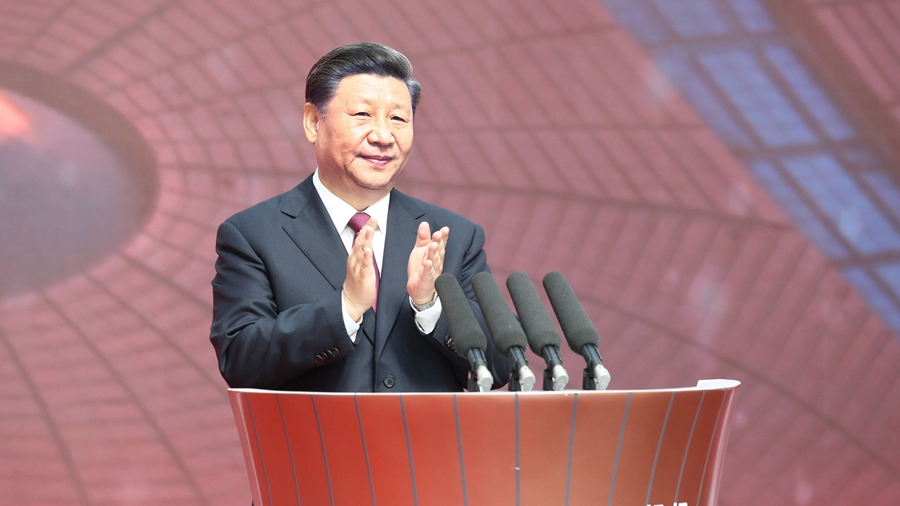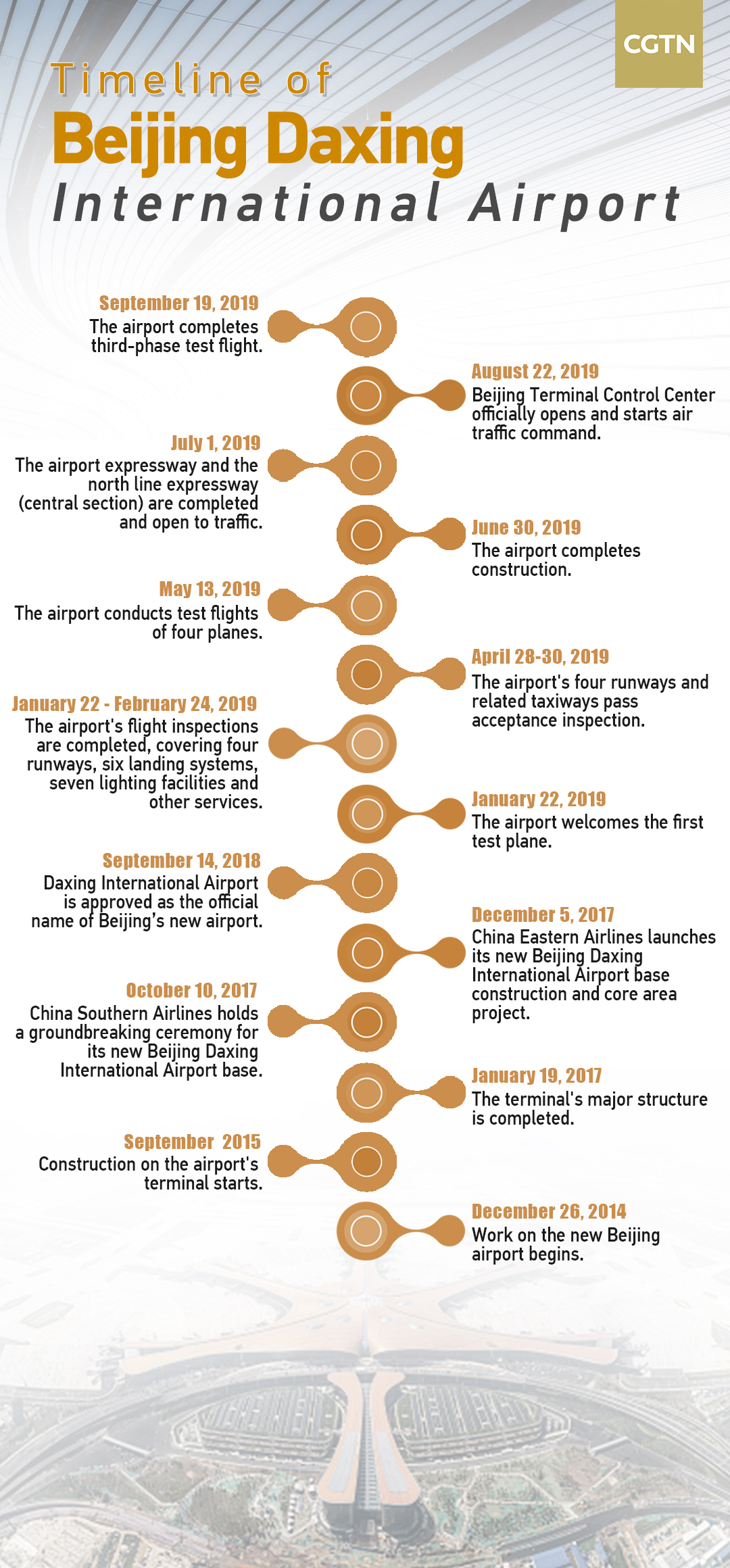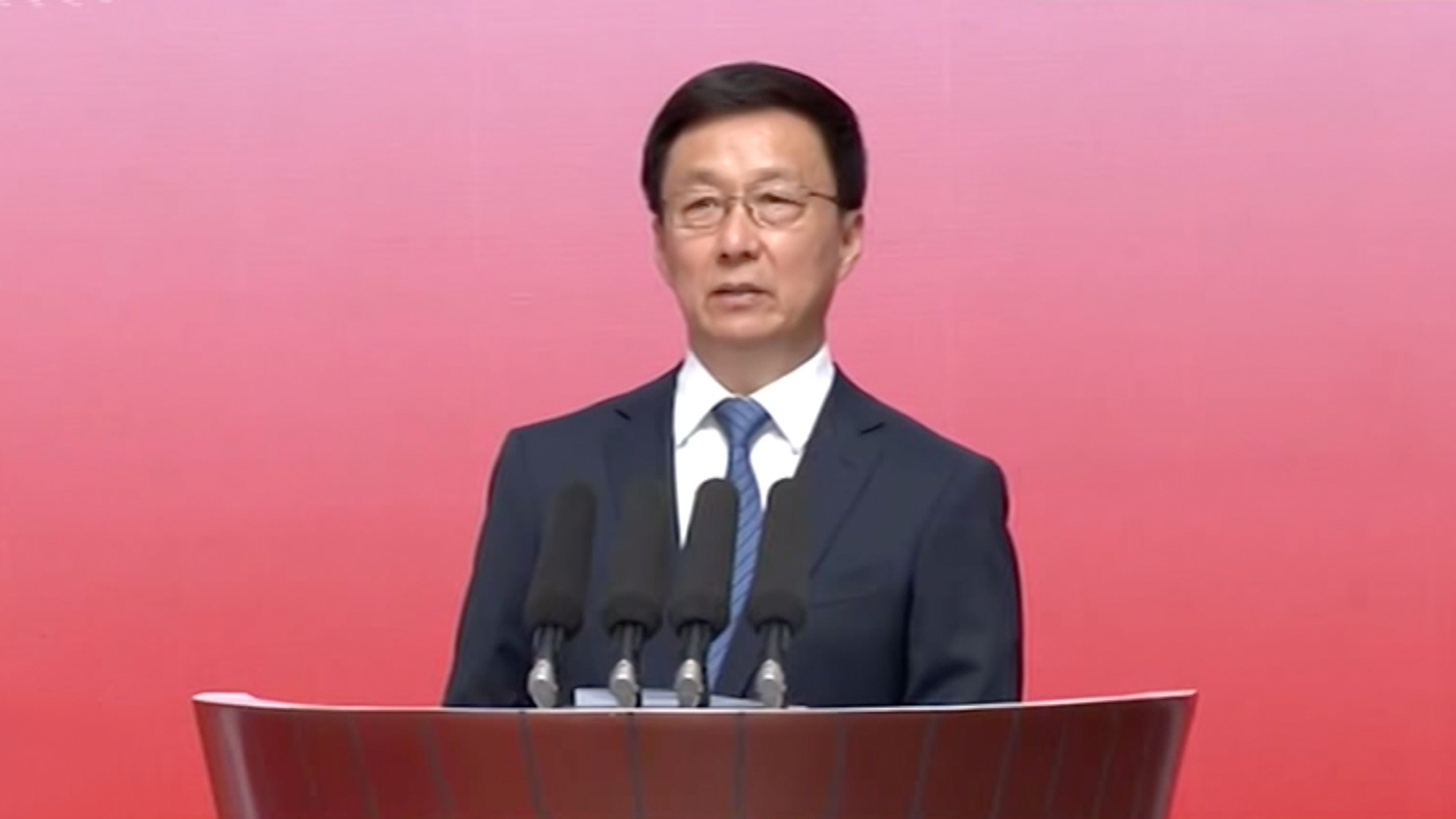00:47

Chinese President Xi Jinping announced on Wednesday that the new Beijing Daxing International Airport is officially open after four years of construction.
"I hereby announce Beijing Daxing International Airport is officially open," Xi made the announcement at the commissioning ceremony, regarding the new airport as "a new power source fueling national development."
The airport operating license was certified at the ceremony by Dong Zhiyi, deputy director of China's Civil Aviation Administration.

CGTN Infographic by Zhang Xuecheng.
CGTN Infographic by Zhang Xuecheng.
A 'golden phoenix' takes off
Located in southern Beijing's Daxing District, the new airport is expected to become north China's air travel hub. It is 46 km from Tian'anmen Square, 55 km from the Xiongan New Area and 67 km from Beijing Capital International Airport.
Calling the airport a "perfect combination of Chinese culture and modern architecture," He Lifeng, head of the National Development and Reform Commission, said it demonstrates the great achievements China has made in its social and economic development and infrastructure construction during the 70 years since its founding.
With a phoenix-shaped layout, the new airport will have the capacity to handle 45 million passengers annually by 2021, and 72 million by 2025.
Click here to see a 3D demonstration of the airport.
World-class technology
With an investment of 450 billion yuan (about 63.3 billion U.S. dollars), Beijing Daxing International Airport features four runways, 268 parking lots, and a terminal complex of 1.43 million square meters.
A total of 103 new patents and technologies, as well as 65 new processes were developed and applied, reaching a localization rate of over 98 percent.
Cutting-edge technologies have been integrated into the airport, such as the air traffic control system, which will be the largest in the world. It also features a world-leading ground guidance system which can automatically detect foreign objects on the runway in low visibility conditions of 75 meters.
The complex is also 100-percent "green", with renewable resources making up to 16 percent.
Other advanced technologies adopted include paperless security check-in, automatic baggage tracking, 5G coverage, and accessibility facilities.
Read more: Here are the futuristic technologies in the new Beijing airport
Expectations for future development
03:50

"As a major landmark project in the capital, the new airport's operation plays a significant role in improving the international competitiveness of China's civil aviation (industry), better supporting the country's opening to the outside world, decentralizing Beijing's noncapital functions, and promoting coordinated development of the Beijing-Tianjin-Hebei region," said Chinese Vice Premier Han Zheng at the ceremony.
Han said he hopes the airport can be a new benchmark for the construction and operation of an international aviation hub, and it will serve as a world-class gateway to China. The new airport, together with Beijing Capital International Airport, should form part of a modern international aviation hub that connects the whole world.
The airport is also expected to proactively promote reform and innovation in the Beijing-Tianjin-Hebei region, as well as the development of the Xiongan New Area.